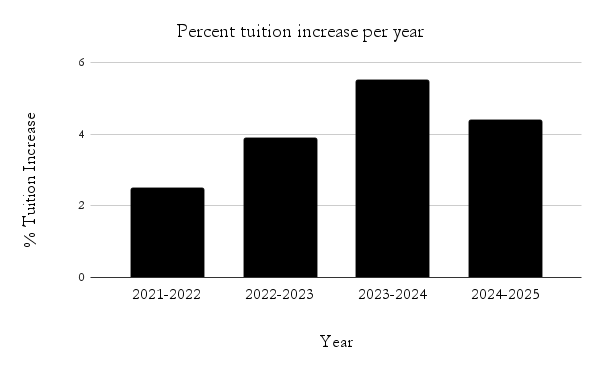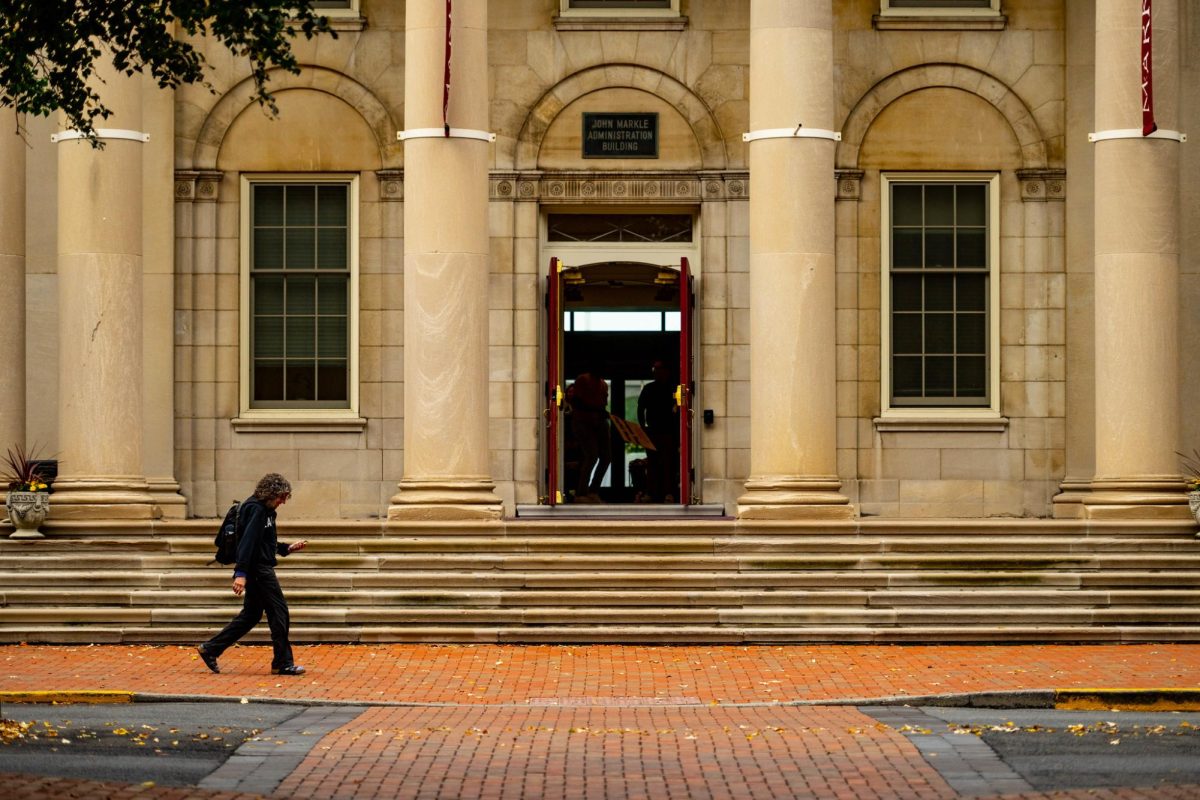Students for the 2024-25 academic year can expect to pay $3,538 more than this year after the college announced a 4.4 percent tuition increase. This increase, which follows a 5.5 percent tuition hike last year, brings the total cost of attendance to $83,652, with inflation cited by the administration as the primary reason for the changes.
The 2022-23 academic year’s total cost of attendance was $75,954, resulting in an increase of $7,968 over the past two academic years.
“Following careful review by our faculty and staff committee and detailed review of College costs by the Board of Trustees, both groups concluded that the increase of 4.4% in the comprehensive fee was necessary to keep up with the rising costs associated with a Lafayette education,” wrote Scott Morse, a college spokesman, in an email.
“The Consumer Price Index, which is the figure widely referred to as the definition of inflation, rose 3.4% last year,” Morse continued. “Higher education price index tracks the categories of expenses directly related to higher education.”
“This year’s increase primarily reflects the impacts of these inflation realities on the College’s expenses,” he added.

College President Nicole Hurd, who is also a voting member of the board of trustees, said multiple factors contributed to the decision.
“All of us want to make sure that we do two things well: that we provide an incredible student experience, and that we continue to invest in financial aid … so I think, as we make those decisions, that we focus on the student experience and give students an amazing four years on campus,” Hurd said.
Lafayette students offered contrasting opinions.
“I think it is crazy how much the tuition has increased, and it just feels like it’s as tuition increases … the average day to day of a student is just getting worse,” Matthew Wetzler ‘26.
Other students expressed concerns about paying this higher amount.
“I have two younger siblings who also need to go to college, to go to school,” Sylvia Kimelman ’26 said. “It definitely weighs on me a lot. I think that the amount of money [Lafayette’s] asked me for is disgusting. And I don’t know how they expect everyone to continue to be able to afford an education.”
Despite the tuition increase, Hurd and members of the administration emphasized that financial aid will still be a top priority for students.
“I’ve been very aggressive since I got here,” said Hurd of her no-loan policies. The college announced in October that it would offer a loan-free education to students of future classes with a family income of under $200,000.
“I’m incredibly committed to access and inclusion and making sure we can provide financial aid to our families,” she continued.
Grace Moser ’24, the student representative on the Board of Trustees Financial Policy Committee, did not respond to multiple requests for comment.

























































































































